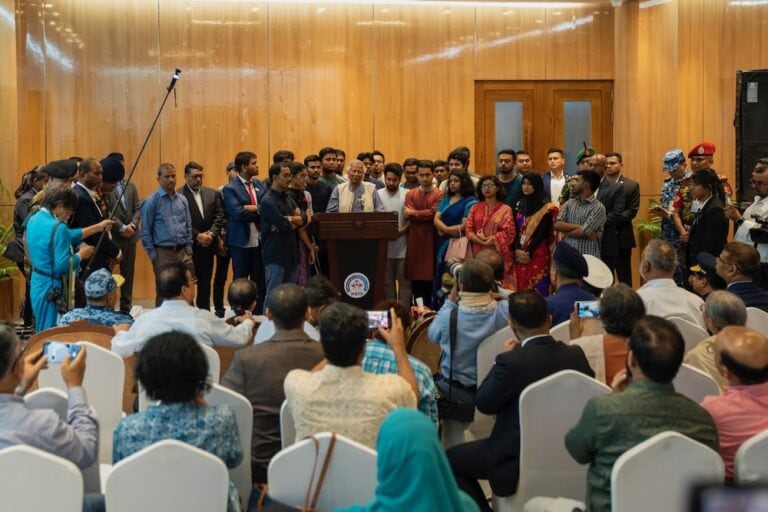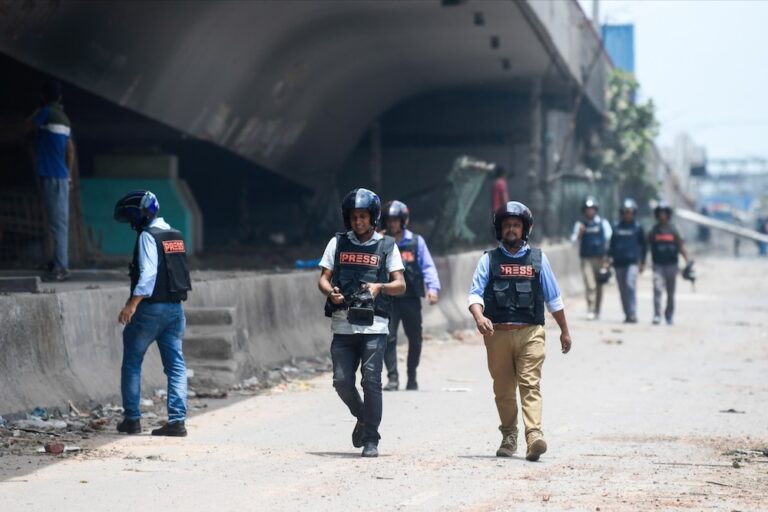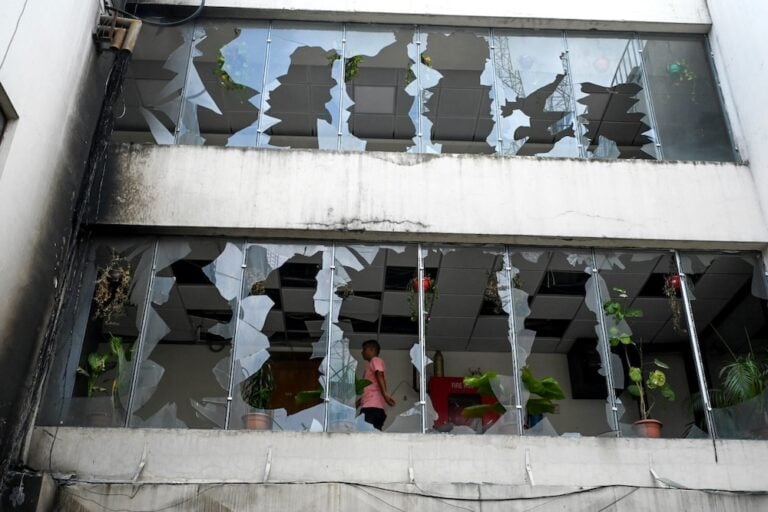Swiss authorities are investigating the potentially illegal export of mobile phone surveillance technology to an infamous elite unit of the Bangladeshi security apparatus accused of wide-scale human rights abuses.
Swiss authorities are investigating the potentially illegal export of mobile phone surveillance technology to an infamous elite unit of the Bangladeshi security apparatus accused of wide-scale human rights abuses. The investigation comes after Privacy International and Swiss magazine WOZ provided evidence that representatives of the Rapid Action Battalion were in Zurich this past week meeting with the Swiss surveillance company Neosoft.
In April, Privacy International published restricted procurement documents showing that the RAB were looking to buy mobile phone tracking technology, known as an IMSI Catcher, which we believed they were looking to purchase from a company based in Switzerland.
However, evidence provided to Privacy International suggests that the deal may still not yet be complete. For an export of an IMSI Catcher to go ahead, Swiss authorities previously confirmed to Privacy International that companies need approval in the form of an export license. We have therefore provided our new evidence to the relevant Swiss authorities, who have confirmed that in addition to other measures they have now instructed customs authorities to investigate.
The investigative work of WOZ was able to confirm the presence of 10 men who checked into a hotel in Zurich last week under the name of NeoSoft, a prominent manufacturer of ‘mobile technologies’ used to identify and track mobile phones and intercept calls. In a montage of photographic evidence, they are later seen outside of NeoSoft’s offices, in a minibus registered to NeoSoft, and then finally in the hotel lobby holding NeoSoft documents. They have since been confirmed by a business partner of NeoSoft to be from the RAB.
RAB have a brutal history and are at the centre of deteriorating human rights situation in Bangladesh. Over 700 extrajudicial executions have been carried out by the RAB over seven years since its formation in 2004, according to Amnesty International. RAB have been reported to carry out vicious and illegal beatings of protesters, including arbitrary detentions and torturing of detainees.
The tender documents received by Privacy International show that 10 RAB representatives are contracted to receive 10 days worth of training at the premises of the seller. The training includes instruction on how to administer the entire system, as well as how to maintain and repair the equipment.
NeoSoft’s brochures describe the company as ‘specialized in the development and the production of high-end products (software and hardware) for mobile technologies’. These technologies include mobile monitoring systems that record voice sessions and SMSs, equipment that activates the microphone on mobiles, and the technology which appears to be outlined in the procurement documents, an IMSI Catcher. IMSI Catchers, in their basic form, mimic cell towers in order to seduce a mobile phone to surrender personally identifiable information such as the unique number of the phone or SIM card (IMSI number). With this, it is possible to identify the user of the device.
In a country like Bangladesh where it is obligatory to provide personal documents and even fingerprints in order to buy a SIM card, it is a matter of routine to then identify the user of the device. The particular IMSI Catcher described in the tender documents can also locate the mobile phone, and comes with a microbus vehicle. Advanced IMSI Catchers are even able to perform interception of voice, SMS, and data, though it is unclear whether this is the type of product RAB are looking to purchase.
The provision of turnkey solutions including providing extensive consultancy services and training is common place within the surveillance industry. Indeed, NeoSoft’s website boasts of its ‘academy program’, in which ‘our instructors will train your staff how to use our software and hardware products’.
Exporting Surveillance
The most recent evidence has since been forwarded to the Swiss authorities responsible for export controls, SECO. In April, SECO confirmed that the export of an IMSI catcher to Bangladesh would require an export license, but would not confirm however whether any specific company has been granted permission to export an IMSI catcher to the RAB. They have since confirmed that customs authorities have been instructed to investigate whether any rules have been broken in light of our evidence.
Should SECO determine that no export laws have been broken, it clear that any loophole that may have been exploited must be closed.
Previous evidence also suggests that the actual export itself is taking place through an intermediary based in Germany, so it is possible that no export license has been granted in Switzerland. Swiss authorities have also confirmed that they have been in touch with their German counterparts to see whether or not an export license to Bangladesh has been issued.
However, if NeoSoft were providing training on the use of the technology, this should amount to an ‘export’ under export regulations. Generally export regulation not only applies to the export of an item, but also to information or training provided for the development, production or use of that item.
Bigger Issue
Export controls are in place to ensure that the sale of security equipment does not facilitate human rights abuses. If NeoSoft has been providing the RAB training and surveillance equipment from Switzerland without breaking any export laws, it points to a significant loophole in policy that must be closed immediately.
The sale of this type of surveillance technology to a force such as the RAB, whose record is well known, is extremely troubling. Authorities must investigate and act immediately.
The use of this type of equipment needs to be strictly prescribed by law, and conducted within a strict legal framework with appropriate levels of oversight. It is difficult for anyone to conclude therefore that the RAB, who have been roundly condemned by NGOs and governments alike, should have access to this technology and to the knowledge of how to apply it. The export of this technology, if it goes through, can only therefore serve to undermine human rights in Bangladesh.
This is not an isolated incident, and we have seen in the past governments stepping in to prevent the sale of these technologies where there is a high likelihood of human rights abuse to occur. The UK has previously rejected applications for the export of IMSI catchers to an Asia Pacific country on these grounds, and is unlikely to approve any export of mobile phone monitoring technology to Nigeria for counter terrorism operations.
Still, little is known about how the trade in such technologies actually operates and about the methods by which controls can be evaded. It is urgent that the industry be brought out of the shadows and that these safeguards and enforcement mechanisms be updated in order to ensure human rights.


